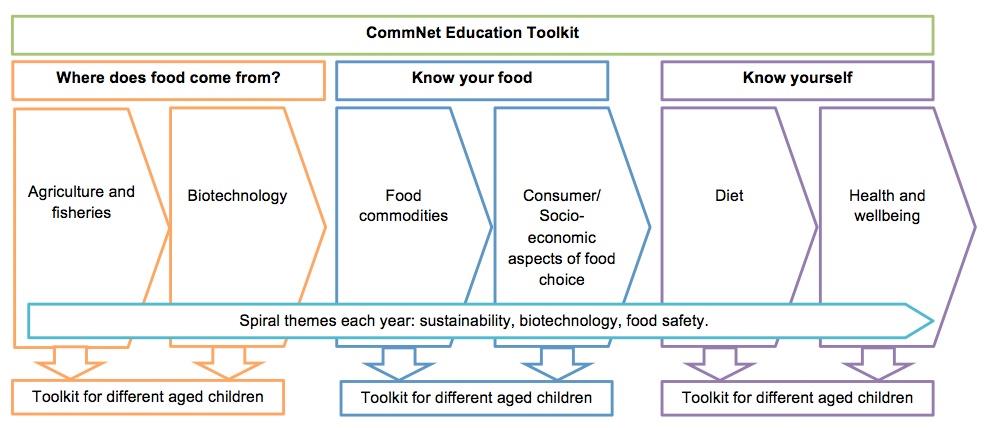Careful consideration has been placed on the learning needs of children and young people, as well as the concepts introduced. Educators are free to select the resources most suitable to the learning needs of their children and young people, supporting those with special educational needs. In addition, the resources are designed to allow the educator select those most useful for their teaching - providing flexibility and choice.
This approach clearly shows the progression in understanding from one year to the next, building on previous learning and allowing for FP6 and FP7 related projects to be included as case studies of good practice. In addition, it provides a structure which educators from throughout Europe can recognise and use to support learning.

The Toolkit is divided in the three areas depicted in the above scheme:
1) Where does food come from?
The first wave of resources, Where does food come from?, links specifically to 'agriculture and fisheries' and 'biotechnology', as highlighted in the thematic overview.
2) Know your food
The second part of the Toolkit, Know your food, tackles issues suche as food labelling and packeging and the cultural and social aspects of food consumption.
3) Know yourself
The third wave of resources, Know yourself, focuses on diet, health and wellbeing. The resources aim to provide essential knowledge to children and young people to help make decisions now and in the future.